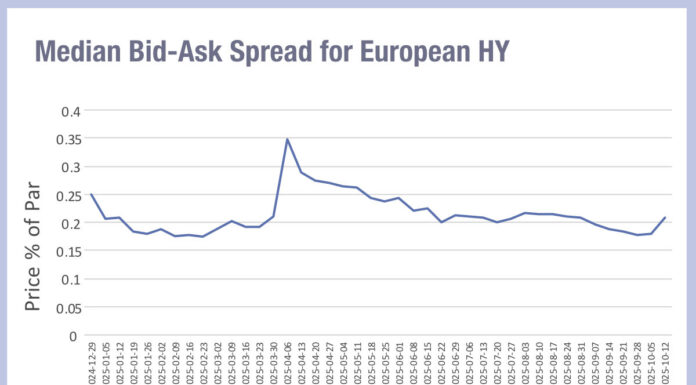
The US Securities and Exchange Commission’s Division of Investment Management Staff has published a statement to elicit feedback on ways to enhance its regulatory regime governing investment company cross trading.
The internal crossing of trades provides investment managers in some jurisdictions, including Europe, with a cost effective way to deliver best execution to clients when one portfolio is selling the same assets that another is buying. That avoids the costs with trading externally, but requires an independent model for pricing to ensure that the trade is fair to both end investors.
On 1 June 2020, SEC sub-committee the Fixed Income Market Structure Advisory Committee (FIMSAC), unanimously passed a proposal to support internal crossing in the US.

At that meeting, Lance Dial, counsel at Wellington Management, said, “Over a year that would mean between US$1.4 to US$3.2 million dollars in bid ask spreads that our clients would not have to pay, depending on the assumptions you make.”
Under US regulations, Rule 17a-7 of the Investment Company Act of 1940 cross trades under certain protective conditions, typically involving a security for which market quotations are readily available and the trade priced at an independent market price.
Other requirements include its acceptability under the fund mandates and no commissions, fee or other remunerations being paid in connection with the transaction.
Commissioner Elad Roisman, said, “I am grateful that the staff is moving forward in reviewing Rule 17a-7 and prioritizing questions related to fixed income in particular. This past year, we have all seen that our fixed income markets are critical to the functioning of our other securities markets and our economy more broadly. I look forward to hearing insights from commenters about how we can facilitate fixed income trading in ways that benefit investors and our markets.
In December 2020, the SEC adopted a new rule under the Act to address valuation practices and the role of the board of directors with respect to the fair value of the investments of a registered investment company or business development company. This ‘Valuation Rule’ includes a definition of the term ‘readily available market quotations’ with the clarification that ‘‘quotation is a quoted price (unadjusted) in active markets for identical investments that the fund can access at the measurement date, provided that a quotation will not be readily available if it is not reliable.’’
However, it concluded that securities not traded on an active market, and/or are valued using inputs other than quoted prices for the specific security, such as credit spreads are not consistent with the definition of readily available market quotations.
That bars ‘indications of interest’ and ‘accommodation quotes’ plus the SEC ruled out ‘indications of interest’ and ‘accommodation quotes’, however it found that pooled investment vehicle securities, such as those of funds that publish their net asset value (NAV) daily and issue and redeem shares at that NAV (such as mutual funds), are generally consistent with the definition of having “readily available market quotations under the final rule.”
In its statement, the Division of Investment Management Staff noted “We believe that funds’ cross trading practices have evolved over the last several decades and, accordingly, we believe it is once again appropriate to assess what, if any, changes to rule 17a-7 may be warranted.”
It invited comment on the following points:
1. Current cross trading practices. Under what circumstances do funds currently engage in cross trading? To what extent do funds’ current cross trades not have readily available market quotations as defined in the Valuation Rule? What amount of cross trading occurs between two registered investment companies as compared to cross trading between a registered investment company and another type of affiliate? What types of securities do funds currently cross trade? What types of securities do advisers believe they could cross trade under current rule 17a-7, but choose not to rely on the rule and instead to trade in the market? What types of securities would advisers like to cross trade but believe they cannot do so under the current rule 17a-7?
2. Securities Eligible to Cross Trade: Pricing and liquidity. What are the advantages and disadvantages of the threshold requirement in rule 17a-7 that a security have a “readily available market quotation”? What sources of independent current market prices are used to cross trade securities under rule 17a-7? What are the liquidity characteristics of securities that funds currently cross trade? Are cross traded securities valued in the same manner under rule 17a-7 as they are under section 2(a)(41) of the Act? What other criteria for the transactions would protect against conflicts of interest or other risks of cross trades?
3. Controls. What kinds of controls do advisers have in place to govern cross trading? What controls do advisers have in place to assess whether a cross trade is consistent with the adviser’s fiduciary obligation to its clients and is in the best interest of both the buying and selling fund? What controls do funds have in place to assess whether a cross trade is consistent with the investment policy of both the buying fund and the selling fund?
4. Market transparency. How does cross trading affect market transparency? How might transparency be enhanced for all market participants? To what extent might cross-trades affect market efficiency because they are not publicly reported?
Roisman said, “In December 2020, I supported the Commission adopting the new Investment Company Act Rule 2a-5, to provide clearer rules for investment company boards of directors with respect to their obligations to value portfolio securities. During the comment process for that rulemaking, however, we heard that Rule 2a-5 and its definition of “readily available market quotation” would likely affect the ability of funds to trade fixed income securities with their affiliates. These were important concerns and remain so today.”
©Markets Media Europe 2025













